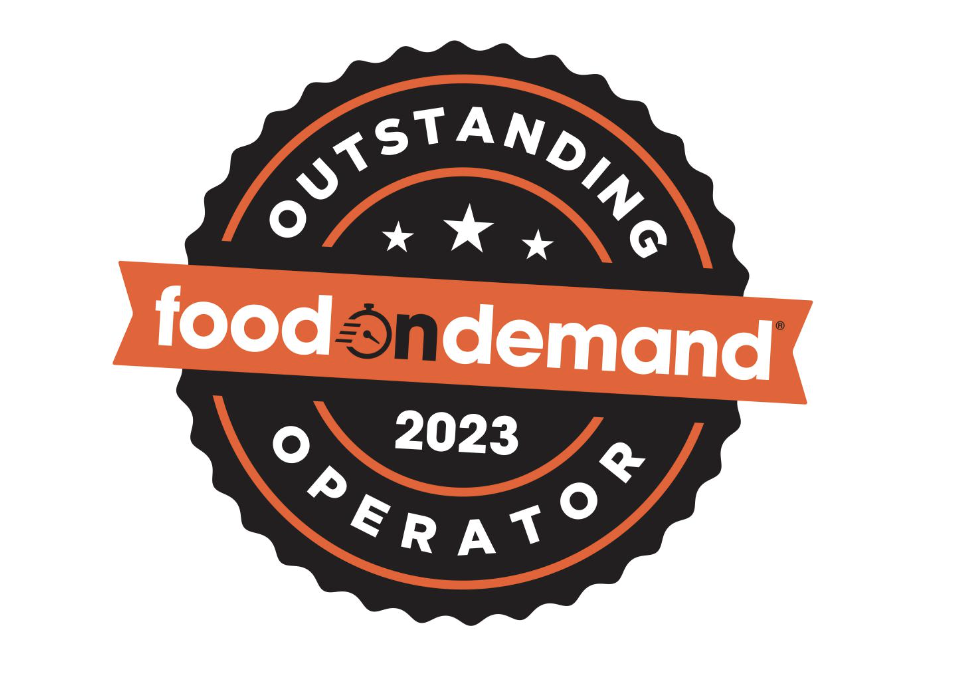One thing that is a constant in restaurant management is change. Embrace it or risk obsolescence. But there’s a corollary to that. While being open to change, it’s also good to retain tried-and-true tactics. The ability to hold both philosophies at once can unlock success.
Food On Demand recently recognized 20 operators for outstanding performance and innovation in the off-premises world. They each have wisdom and insights that could easily be taught at the Wharton School. Here are just some of their learnings that you might consider in your own operations. Some lean into the future, some lean into the past. All are smart and battle-tested.
Handcraft Burgers is all about expressing gratitude
Ask David Ciancio, co-owner of Handcraft Burgers, what business he is in and he will surprise you with his answer. “We don’t think of ourselves as a burger shop,” he said. “We think of ourselves as a thank-you machine.”
The appreciation mechanics begins after the brand first receives a new customer’s email address. A thank-you message goes out the next day. Eight more emails are sent every six days, with info on the brand’s position on gratitude, charitable giving and its loyalty program. All of course end in thank you.
“If you look at our social media, every single post ends that way,” Ciancio said.
The brand augments the gratitude with an irreverent touch to keep customers smiling. Case in point: it asks consumers for their birthday. But instead of offering a free meal then, it tells consumers, “We don’t do birthday gifts here, we do half-birthdays,” adding that six months from your birthday is when you’ll get a free burger. Surprise and delight.
“Eating burgers is supposed to be fun,” said Ciancio.
Dog Haus unites the virtual with in-store
Dog Haus is renowned for its gourmet and other-worldly hot dogs, sold both in-store and off-premise. But it has also done exceedingly well in the virtual space selling breakfast burritos — Bad-Ass Breakfast Burritos to be exact — under its virtual concept Absolute Brands. That brand did so well that Dog Haus secularized it and brought it from the ghost world into the physical realm.
Wait, you can do that?
Hot diggedy dog you can.

Michael Montagano is one bad-ass operator.
“It was an interesting opportunity to marry our success in-store with Dog Haus and success online with breakfast burritos to cross-pollinate the customers,” said CEO Michael Montagano. “Absolute Brands is now a brick-and-mortar brand because of the success it had virtually over the past three years. First party is what brings this all together.”
Dog Haus launched Absolute Brands in 2020 as a way to capture revenues during the pandemic. It has others, including The Absolute Wurst, Bad Mutha Clucka, and Plant B. Everything flows back to the main brand, which is strategically intentional.
“It’s all synergistic to the kitchen,” Montagano said, “because it was programmed to work that way from the beginning, not by happenstance.”
Sweetgreen’s automation incarnation
Enjoy a meal from Sweetgreen and by the end of it you may think that it was infinitely delicious and infinitely nutritious. Now you should add a third: infinitely innovative.
The salad hub launched two Infinite Kitchens last year, one in Illinois and one in California. The Infinite Kitchen system robotically assembles salads and bowls, with the ability to make up to 500 meals an hour, which is 50 percent faster than humans can do. The robot-run models were created by Spyce, the automation restaurant company Sweetgreen purchased in 2021.
Consumers order using a tablet that instructs the robotic production line to drop ingredients that were prepped beforehand into bowls on a conveyor. Guests receive their meals in three to five minutes.
“It’s really fast, it’s really accurate, and it helps to elevate the team member experience because it continues to make them an integral part of the process, whether it’s prepping the ingredients that are fresh every day or focusing on hospitality when they have that interaction with the customer who is coming in to pick up their bowl,” said Arnie Hawksworth, head of growth channels at Sweetgreen.
Costa Vida believes in the personal touch in vendor relationships
Allen Beck, director of off-premises and catering at Costa Vida Fresh Mexican Grill, does not shy away from accepting counsel from peers, competitors, strangers, anyone who has knowledge he seeks. It’s his preferred way of obtaining knowledge. His secret weapon for extracting precious intel from people he doesn’t know? He asks them.
“Can I get 30 minutes of your time to just chat? If you were in my shoes, what would you do?” Beck often begins conversations this way. People usually say yes.
This is how Beck rounded out his thinking concerning Costa Vida’s relationship with its tech partner. What emerged were insights that helped Beck and senior leadership at the mid-size brand revamp its off-premises program and customer-facing technology.
Beck and his team hold biweekly calls with tech partners to engage with them about what’s happening across the brand and at individual stores, while also hearing about new offerings on the vendor side of things.
And now, if something goes amiss with anything connected to the brand’s tech stack, Beck knows who to call.
“The ones that take the time to actually have those calls and don’t try to reschedule them … those relationships are great,” he said. “If something hits the fan and the world’s falling apart for an operator, I can call several of my [partners] because I have their cell phone numbers.”
Smoke Shop BBQ embraces third-party delivery

Andy Husbands is all-in on third-party.
Not every operator is wild about third-party delivery. We get it. But there are success stories out there. Smoke Shop BBQ owner Andy Husbands has one.
“I can show you that it’s very profitable for us,” he said.
Husbands slots the expense as marketing on his P&L, but that doesn’t mean he isn’t reaping profits. He is. In fact, his check orders for off-premise are higher than for dine-in. Depending on the season, an average delivery check falls between $45 and $52, he said, which is higher than his in-store averages.
Husbands has become such a believer that he is now a member of the restaurant advisory council for DoorDash.
Papa John’s embraces artificial intelligence
Papa John’s has a legacy of moving quickly to embrace tech innovation. In 2019, it was the first national pizza chain to enter the third-delivery marketplace. And it is showing again that it does not fear the future by embracing artificial intelligence (AI).
The company is using AI to understand price elasticity and quote time algorithms, “an especially hard metric to get right,” said Nancy Combs, VP of digital strategy and product.
It also uses AI for forecasting and scheduling and anomaly detection on various e-commerce channels.
“Don’t be afraid to lean into innovation,” Combs said.
The selected 20 Outstanding Operators will be recognized on stage at the upcoming Food On Demand Conference May 8 – 10 at the Bellagio in Las Vegas. Winners also receive a $1,000 charitable donation to the organization of choice. To learn more about all of the winning strategies, you can find the full list of winners here.
This article includes reporting from Bernadette Heier and Tom Kaiser.


